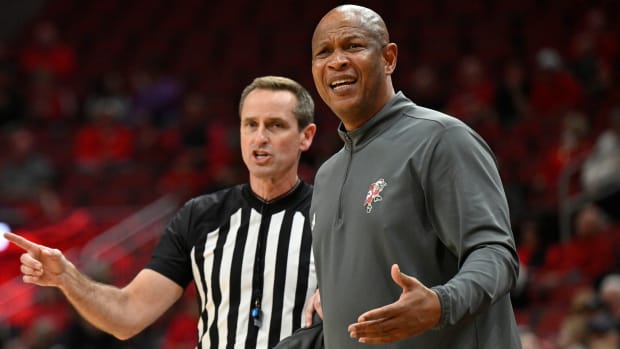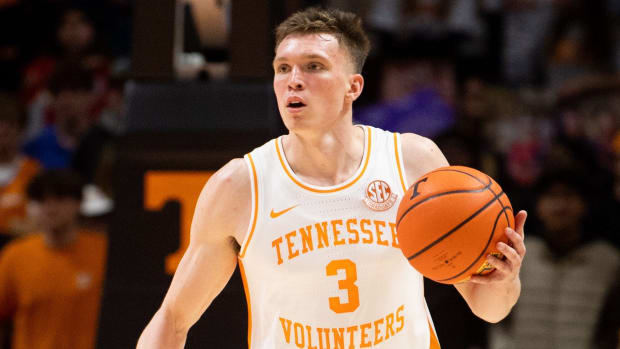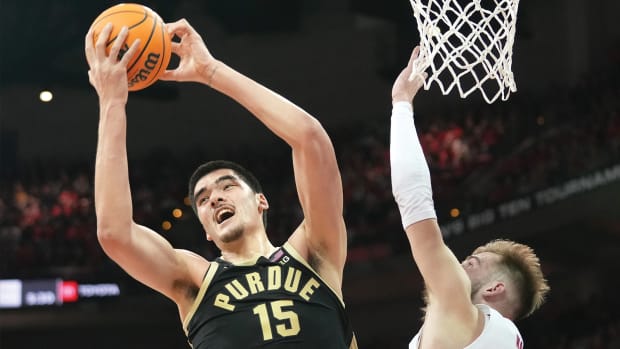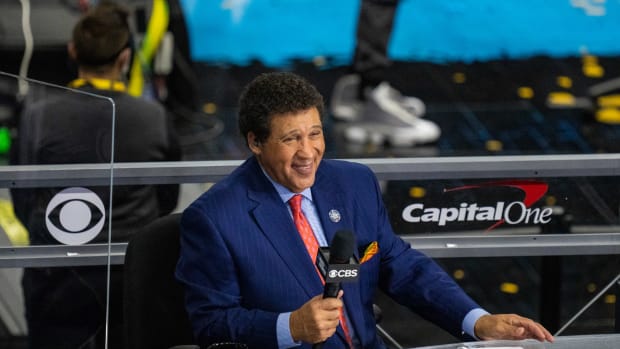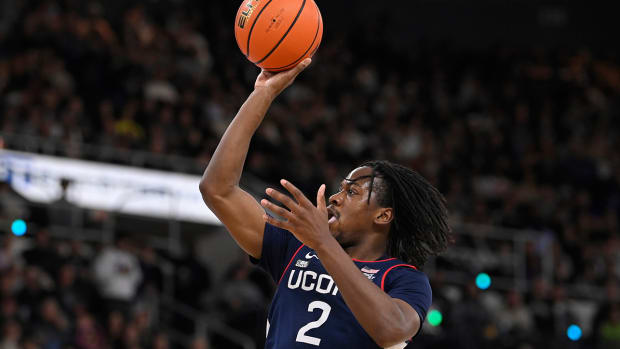NCAA Presents Congress With Bold Proposal for NIL Legislation
For months, the NCAA has asked Congress to craft friendly uniform legislation to govern athlete compensation.
Now, it is doing it in writing.
The NCAA has presented Congressional members its version of a proposal for name, image and likeness (NIL) that skews bold. The governing body of college athletics is asking for lawmakers to grant it antitrust protection, preemption from differing state NIL laws and to allow it to craft all rules on athlete compensation. Sports Illustrated obtained a copy of what the NCAA refers to as “The Intercollegiate Amateur Sports Act of 2020,” which is similar in nature to the Power 5’s NIL proposal that SI obtained earlier this month. The NCAA’s proposal emerges about three months out from a self-imposed deadline. The association expects to reveal a complete version of its NIL legislation by Nov. 1. The policy would be voted on in January and enacted at the start of the next academic year.
However, the NCAA is strongly encouraging Congress to draft a federal NIL bill, the wheels of which are quickly turning. In a four-page document sent to legislators earlier this month, the NCAA details what it believes an NIL bill should look like. The association is brazen in its requests. The NCAA wants Congressional protection from lawsuits and state laws while also seeking full control to create NIL legislation.
NCAA NIL Proposal
By no later than June 30, 2021, the NCAA says it shall establish rules and standards for administering financial aid, participation benefits, licensing revenues and other benefits or payments, including NIL, to amateur athletes, according to the document. They will be in charge of also determining the eligibility of athletes based on their NIL ventures, referring to such as “receipt of payments or benefits from a third party.” The NCAA requests authority to make athletes ineligible for “participation in commercial, athletic or other activities that the NCAA has deemed inconsistent with eligibility for participation” in competition.
Under the proposal, the NCAA will return to Congress to deliver a report to lawmakers 180 days after the legislation is enacted and on a biennial basis thereafter. In a sunset provision in the proposal, the legislation would be repealed 10 years after the enactment (June 30, 2031).
In the proposal, the NCAA argues that NIL legislation without sufficient guardrails threatens gender equity in athletic programs, creates tax liability for athletes, creates an employer-employee relationship between schools and athletes, and invites corruption into college campuses. If differing state laws are allowed to remain, they “would adversely impact the competitive balance that currently exists in college sports,” the document says. In requesting a safe harbor, the legislation seeks protection from legal challenges “originating from federal or state unfair competition statutes and, or, federal or state tortious interference statutes based on unfair competition concepts.”
Like its Power 5 counterpart, the NCAA’s legislation is friendly toward the governing body, as expected. The Power 5 proposal is more specific and includes three restrictions that irk lawmakers who believe any NIL legislation needs to be athlete friendly: athletes cannot sign endorsement deals until they complete their first semester of college; athletes can be barred by their schools from entering into certain NIL ventures; and all NIL contracts with businesses and agents must be made public.
“The proposal is so restrictive that it would prevent college athletes from receiving any endorsement deals from any organization that doesn’t have an existing or prospective contract with their institution or with any of their competitors,” Sen. Cory Booker (D-New Jersey) said in a Senate Judiciary hearing on NIL earlier this month. “The NCAA proposal isn’t only similarly restrictive but it actually sunsets after 10 years, effectively blocking individual states from making progress on NIL only to put us back here in another 10 years.”
Seeking help from Congress, the NCAA’s attempt has somewhat backfired. It has opened itself up to deep inquiries from lawmakers, many of them, like Booker, not fans of the organization. Congressional members are seeking more reform within the association beyond NIL, something raised in the latest and third NIL hearing on Capitol Hill on June 22. In fact, Booker and Sen. Richard Blumenthal (D-Conn.) are crafting legislation that they refer to as an “athlete’s bill of rights,” which could potentially fold into an NIL bill.
Meanwhile, lawmakers are watching closely as the major college conferences craft plans to play football during a pandemic when some others have postponed a season to the spring. “If the Ivy League thinks the danger is too great, the question is why do other leagues or teams feel they can simply move forward as if nothing has changed?” Blumenthal asks.



